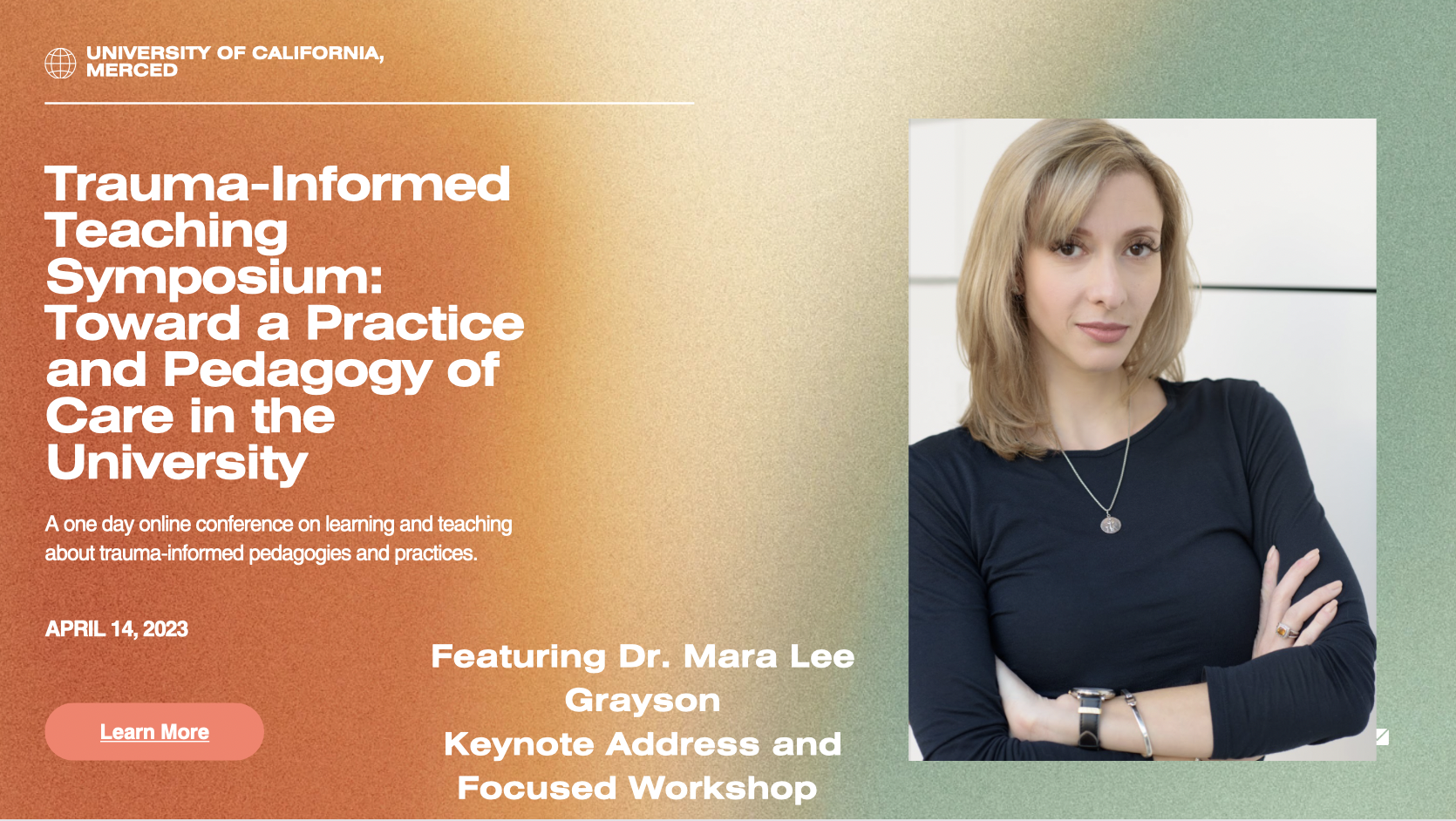View the Trauma-Informed Pedagogy Program here:
–Proposal Submission Deadline Extended–
Trauma-Informed Teaching Symposium: Toward a Practice and Pedagogy of Care in the University
Symposium Program Link:
https://issuu.com/traumainformedteachingsymposium/docs/interdisciplinary...
Call for Proposals
Over the past few years, it has become especially important to recognize and acknowledge individual and collective trauma in the university classroom in order to best approach teaching and learning with compassion– compassion for the whole person. While university students and faculty alike have been impacted by the ongoing Covid-19 pandemic, many have also felt the overwhelming burden of past and present trauma that aects their everyday lives. With this in mind, we invite faculty, students, and community members to join us for an interdisciplinary teaching symposium focused on trauma-informed practice and pedagogy.
In their chapter “How Trauma Informed Care Principles Can Contribute to Academic Success for Students in Hispanic Serving Institutions,” Joy Patton and Lauren Cortez describe six key principles for trauma-informed practice:
● safety
● trustworthiness and transparency
● peer support
● collaboration and mutuality
● empowerment and choice
● cultural, historical, and gender issues
As we attempt to consider how we might move toward a more trauma-informed approach to teaching and learning, we ask you to think about your position at or in relation to the university as an institution, and your own pedagogy. Patton and Cortez elaborate on two key principles, specically in relation to university classroom teaching at an HSI: (1) collaboration
with students by bringing them into the process to discuss mutually agreed upon goals and (2) being sensitive to the racial, ethnic, and cultural background and gender identity of students. (109). What are you currently doing, or what would you like to try out in your own classroom that would help other educators on the path toward becoming more trauma-informed?
As our understanding of trauma and its impact grows, we seek to discover strategies to support our students and peers experiencing trauma through interdisciplinary engagement with the topic of trauma informed teaching. We invite educators and community members to submit a proposal for a 90-minute workshop or panel discussion on a topic related to trauma-informed practice or pedagogy.
Symposium Date and Location
This symposium will take place Friday, April 14th in the heart of the Central Valley, at California’s youngest university, the University of California, Merced. As a designated HSI, UC Merced is home to a diverse student body, with over 50 percent of students who identify as Latinx. Students who attend UC Merced come from all over California, and bring with them diverse backgrounds and experiences.
Proposal Requirements
Please submit a brief abstract (no more than 500 words) of your panel or workshop that details the trauma-informed element of practice or pedagogy your presentation or workshop would cover. Panels and workshops will be 90 minutes, which includes a Q&A session of 30 minutes. Please also include a list of materials (projector, computer, sound system, etc) you might need to facilitate your workshop or panel, and names of all participants and panel title.
Deadline for proposals: January 27, 2023
Submit proposals to Helen Sandoval and Jennifer Dean
hsandoval2@ucmerced.edu; jdean4@ucmerced.edu
Note: This symposium is sponsored by UC Merced’s Merritt Writing Program (MWP) and the Equity, Diversity, and Inclusion (EDI) Committee in conjunction with the Trauma-Informed Teaching FIG (Faculty Interest Group)
PROPOSAL SUBMISSION DEADLINE EXTENDED: FEBRUARY 10TH!!!
(original deadline)


